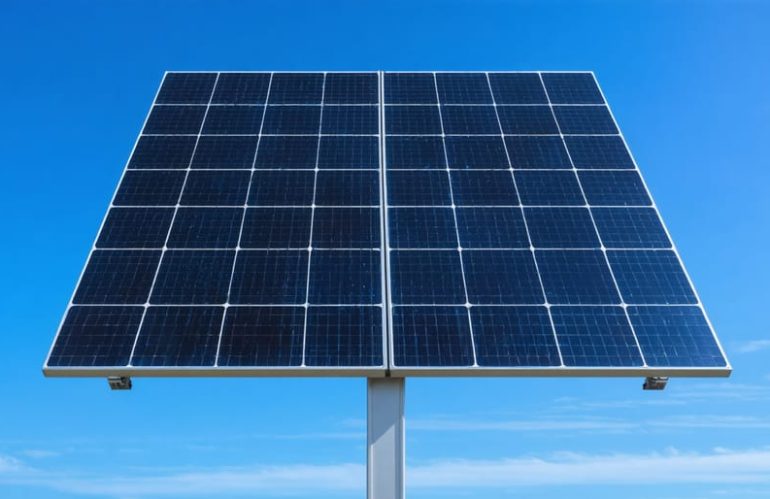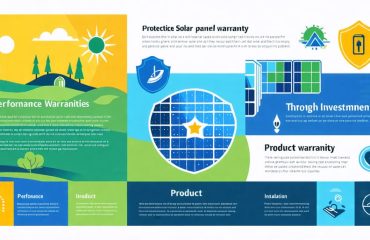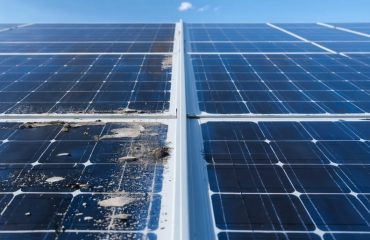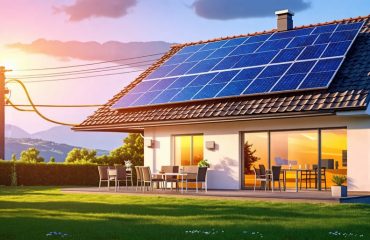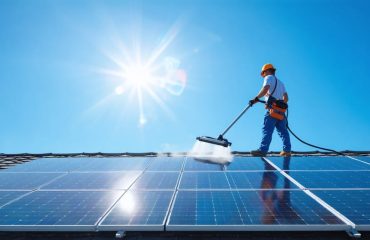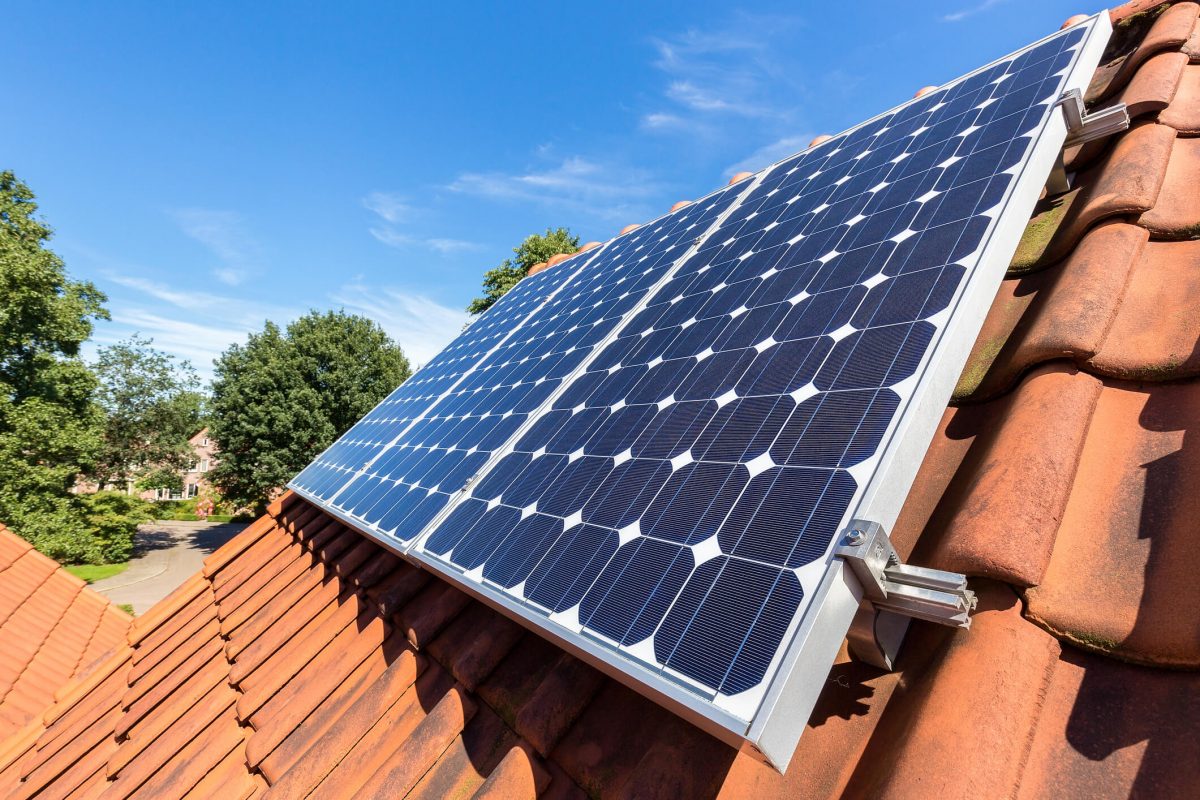Solar panels have emerged as one of the most reliable energy technologies available today, with modern systems routinely delivering consistent performance for 25-30 years. Leading manufacturers guarantee at least 85% power output even after a quarter-century of operation – a testament to their remarkable durability and technological advancement. While initial concerns about solar reliability were valid in the industry’s early days, today’s photovoltaic systems benefit from decades of engineering improvements, rigorous testing standards, and real-world performance data from millions of installations worldwide.
For homeowners considering solar investment, this proven track record offers compelling peace of mind. Modern panels withstand severe weather conditions, require minimal maintenance, and consistently generate clean electricity year after year. Their solid-state design, with no moving parts to wear out, contributes to their exceptional dependability. Industry studies show that less than 1% of solar panels fail during their warranty period, making them more reliable than most household appliances and electronics.
Understanding solar panel reliability helps potential adopters make informed decisions about transitioning to renewable energy. With proper installation by qualified professionals and occasional basic maintenance, today’s solar technology offers a trustworthy solution for long-term energy independence and sustainable power generation.
How Long Do Solar Panels Really Last?
Understanding Solar Panel Warranties
Solar panels typically come with two distinct warranties that speak to their reliability. Understanding solar panel warranties is crucial for assessing the long-term value of your investment.
The performance warranty, usually lasting 25-30 years, guarantees that your panels will maintain a specific power output over time. Most manufacturers promise that their panels will still produce at least 80% of their original output after 25 years. This long warranty period reflects manufacturers’ confidence in their products’ durability and reliability.
The product warranty, typically 10-12 years, covers defects in materials and workmanship. This warranty protects you against manufacturing flaws that might affect your panels’ functionality. Premium manufacturers often extend this coverage to 25 years, matching their performance warranty.
These warranties serve as a reliability indicator because they’re backed by thorough testing and quality control measures. Manufacturers can only offer such lengthy coverage periods if they’re confident their panels will perform as promised. When comparing solar panels, look for companies that offer comprehensive warranty coverage and have a strong track record of honoring their commitments.
Remember that warranty terms vary between manufacturers, so it’s worth reading the fine print. The best warranties include coverage for shipping, labor costs for replacements, and transferability to new homeowners.
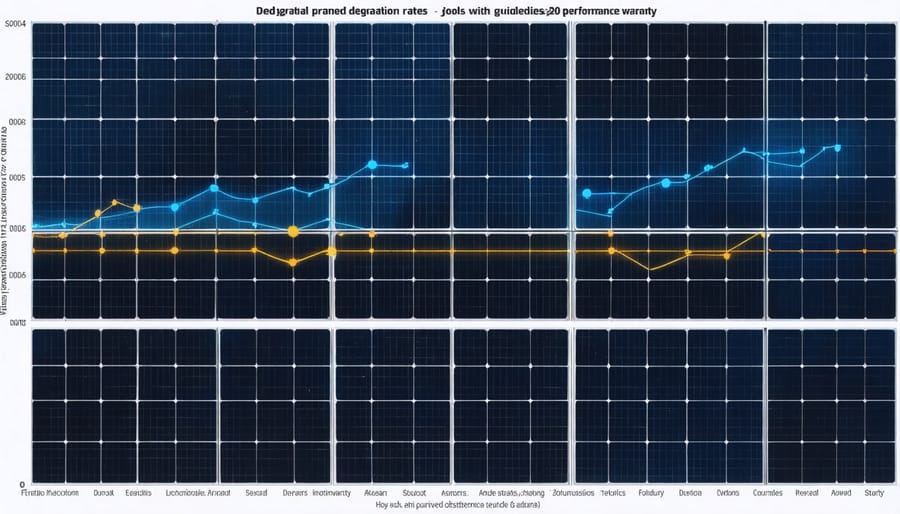
Real-World Performance Data
Real-world studies of solar panel performance have consistently shown impressive reliability and longevity. The National Renewable Energy Laboratory (NREL) analyzed data from over 50,000 solar installations across the United States, finding that modern solar panels degrade at a rate of only 0.5% to 0.8% per year. This means after 20 years of operation, most panels still maintain 85-90% of their original power output.
A comprehensive study in Germany, tracking solar installations since the 1980s, revealed that 88% of systems performed above their predicted power output even after 15 years. Similarly, a 2019 study of residential installations in California showed that 95% of solar panels met or exceeded their warranty specifications after ten years of operation.
Real-world performance data from extreme climate regions is particularly encouraging. Desert installations in Arizona have demonstrated only minimal efficiency losses despite constant exposure to intense heat and sand, while systems in snowy Minnesota continue to perform reliably through harsh winters with proper maintenance.
Insurance company data indicates that less than 1% of solar panel claims relate to equipment failure, with most issues stemming from extreme weather events or improper installation. This real-world evidence supports manufacturer reliability claims and demonstrates that solar panels are indeed a dependable long-term investment for homeowners.
Factors That Affect Solar Panel Reliability
Weather and Environmental Impact
Solar panels are designed to withstand various weather conditions, but understanding the weather impact on solar panels is crucial for realistic performance expectations. While rain actually helps keep panels clean and operating efficiently, heavy cloud cover can temporarily reduce energy production by 10-25%. Snow typically slides off panels due to their tilted installation and dark surface, though very heavy accumulation may require removal.
Extreme heat, contrary to popular belief, can actually decrease panel efficiency by 10-25% above 77°F (25°C). However, quality panels are built to handle high temperatures and continue producing significant power. Strong winds rarely damage properly installed systems, as panels undergo rigorous testing to withstand winds up to 140 mph.
Most importantly, modern solar panels are incredibly durable, with protective layers that guard against hail, debris, and UV radiation. While severe weather events like hurricanes or large hailstorms can potentially cause damage, such incidents are typically covered by both manufacturer warranties and homeowner’s insurance policies.
Installation Quality
The quality of your solar panel installation plays a crucial role in determining how reliable your system will be over its lifetime. Even the highest-quality panels can underperform if not installed correctly. Professional installers ensure proper mounting angles, secure attachments, and appropriate spacing for ventilation, which directly impacts panel efficiency and longevity.
Proper installation includes careful roof assessment, accurate placement for maximum sun exposure, and correct wiring connections. These factors help prevent common issues like water leakage, loose panels, or electrical problems that could reduce system reliability. Expert installers also ensure compliance with local building codes and manufacturer specifications, which is essential for maintaining warranty coverage.
Poor installation can lead to reduced energy production, physical damage, and safety hazards. Common installation mistakes include improper sealing around roof penetrations, insufficient support structures, and incorrect wire management. To maximize your solar panel system’s reliability, always choose certified installers with proven track records and positive customer reviews. Ask for references and verify their credentials before proceeding with your installation.
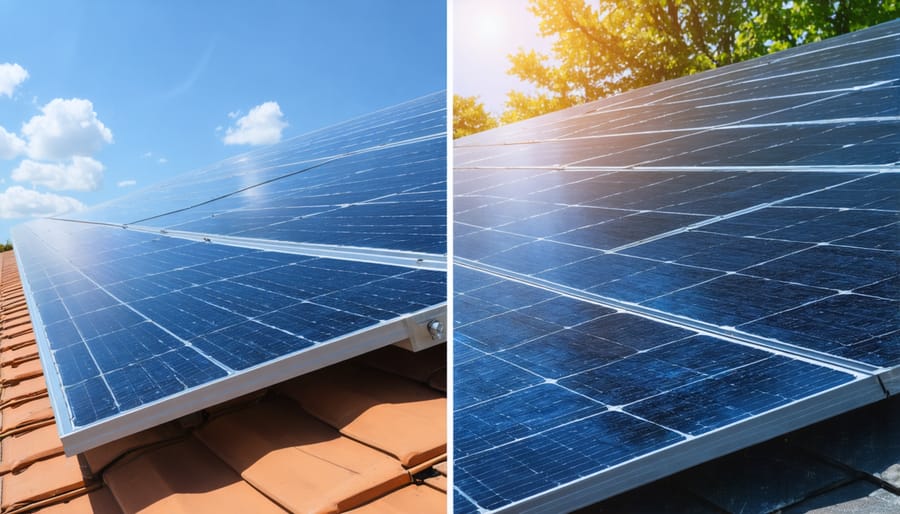
Maintenance Requirements
Solar panels are remarkably low-maintenance systems, which contributes significantly to their reliability. The regular maintenance requirements typically involve just periodic cleaning to remove dust, leaves, and bird droppings that might reduce efficiency. Most installations only need cleaning 2-4 times per year, and rain often helps with natural cleaning. Professional inspections are recommended annually to check electrical connections and ensure optimal performance. In snowy regions, you’ll need to clear heavy snow accumulation, though panels’ tilted installation helps with natural snow shedding. The simplicity of these maintenance tasks, combined with the absence of moving parts, makes solar panels one of the most reliable home energy solutions available.
Signs of a Reliable Solar Panel System
Quality Certifications to Look For
When shopping for solar panels, certain quality certifications serve as reliable indicators of performance and durability. The most important certification to look for is the IEC 61215, which ensures panels can withstand various environmental conditions. UL 1703 certification is another crucial standard, particularly in North America, as it verifies electrical and fire safety.
The International Organization for Standardization (ISO) 9001 certification indicates that the manufacturer follows strict quality management practices. For U.S. installations, panels should have certification from the California Energy Commission (CEC) and be listed on their approved products list.
Look for panels certified by the Clean Energy Council (CEC) in Australia or the Microgeneration Certification Scheme (MCS) in the UK. These regional certifications ensure panels meet local standards and qualify for incentive programs.
Premium manufacturers often go beyond basic requirements with additional certifications like PV+Test or PVEL Top Performer status, which involve rigorous testing for durability and performance. When comparing panels, these extra certifications can help identify truly high-quality products that will stand the test of time.
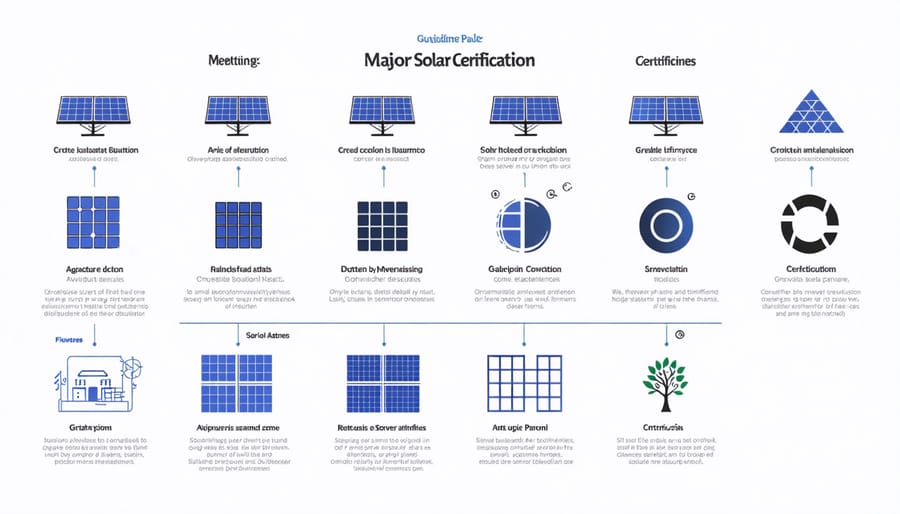
Manufacturer Track Record
When choosing solar panels, a manufacturer’s track record is a crucial indicator of reliability. Look for companies that have been in business for at least 10 years, as this demonstrates stability and proven performance. Well-established manufacturers like LG, Panasonic, and SunPower have built strong reputations through decades of consistent quality and innovation.
Check the manufacturer’s financial stability and warranty support capabilities. A 25-year warranty is only valuable if the company remains in business to honor it. Research customer reviews and independent testing results to gauge real-world performance and customer satisfaction. Industry certifications, such as IEC and UL listings, are also important indicators of quality standards.
Pay attention to the manufacturer’s quality control processes and their track record of handling warranty claims. Companies that are transparent about their manufacturing processes and have low warranty claim rates typically produce more reliable panels. Additionally, consider whether the manufacturer has a local presence or authorized dealers in your area, as this can affect service quality and warranty support.
Remember that the cheapest option isn’t always the most cost-effective in the long run. Investing in panels from reputable manufacturers often provides better reliability and peace of mind.
Solar panels have proven themselves to be remarkably reliable energy solutions, with most systems performing efficiently for 25-30 years or more. Throughout this article, we’ve explored how modern solar technology offers impressive durability, minimal maintenance requirements, and consistent energy production that homeowners can count on. The data clearly shows that quality solar panels maintain about 80% of their original efficiency even after 25 years of operation.
For homeowners considering solar installation, the path forward is clear. Start by getting multiple quotes from reputable solar installers who offer strong warranties and have positive customer reviews. Look for panels from established manufacturers with proven track records, and ensure your roof is in good condition before installation. Consider factors like local climate, roof orientation, and shade patterns to maximize your system’s reliability.
The financial benefits of solar are compelling, with most homeowners seeing significant returns on their investment through reduced energy bills and potential tax incentives. When properly installed and maintained, solar panels are one of the most dependable home improvements you can make.
Take the next step by scheduling a professional solar assessment of your property. This will help you understand your home’s solar potential and get customized recommendations for a system that meets your energy needs. With solar technology continuing to advance and prices becoming more affordable, there’s never been a better time to invest in this reliable, sustainable energy solution.

